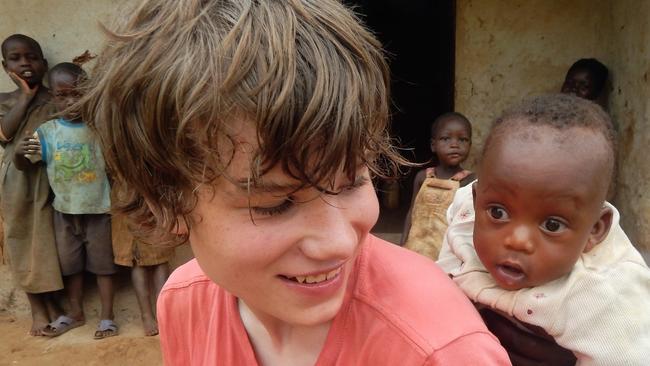Islam at heart of Saudi tourism
SAUDI Arabia, the birthplace of Islam, hopes it can use its religious heritage to pull in not just pilgrims but tourists too, without compromising its way of life.
SAUDI Arabia, the birthplace of Islam and home to its holiest shrines, hopes it can use its religious heritage to pull in not just pilgrims but tourists too, without compromising its way of life.
Officials are confident they can attract hundreds of thousands of high-end holidaymakers to visit the conservative Muslim country. And the holy city of Mecca, with its key Islamic sites and ancient markets, is central to the plan.
The Supreme Commission of Tourism (SCT) said earlier this year that tourist visas would be granted to foreigners for the first time. It licensed 18 tour operators to issue the visas, abolishing a long-standing requirement for a Saudi resident to sponsor those wishing to enter the country.
But the desert kingdom, where Islam is the writ of law, does not plan to water down the central role of religion in daily life or compromise its strict system of public morals, including a ban on alcohol.
Because the SCT wants tourists to remember their visits, the interior ministry has ended a ban on photography with the declared goal of attracting more visitors.
But make no mistake: alcohol will remain banned, women will have to cover from head to toe and Muslims alone can set foot in the Islamic holy cities of Mecca and Medina.
"We are shooting for high-end individuals, there won't be any mass tourism here. We target people who like Saudi Arabia for what it is, people who will like the experience and hopefully come back again and again," said SCT spokesman Majid al-Shiddi.
With oil receipts at record levels, Saudi Arabia can afford to take it slow. It hopes to lure 1.5 million tourists by 2020 – compared with less than 100,000 foreign tourists who are not pilgrims today – and to see a rise from five to 18 per cent in tourism's contribution to its economy.
The tourism drive comes as the world's top oil producer seeks to diversify its economy and find jobs for a rapidly growing population of 17 million Saudis.
"We have a lot to offer non-Muslim tourists. Scuba-diving, a diversified landscape, the hospitality and historic sites. There are more than 6,300 heritage sites," Shiddi said.
Officials expect Mecca, where millions of worshippers gather each year during the haj season, to remain the most visited city, followed by Medina. But authorities will now try to show tourists the rest of the country too.
"Mecca and Medina will be a must stopover for Muslim tourists," Shiddi said. "But there are many pilgrims who do not visit other cities in the kingdom. If we manage to get high-end pilgrims to visit other cities that would be great."
Already, work is under way to make sure that when visitors do arrive they have somewhere to stay, places to shop and ways of getting around. And Mecca is at the heart of this drive.
Real estate developers say the holy city accounts for more than half of total investments in the kingdom.
Like Gulf playground Dubai, Mecca is enjoying a construction boom as exclusive hotels, apartments and shopping malls rise around the Grand Mosque.
Only the call to prayer halts works on the giant property projects, a stone's throw from the mosque which houses the Kaaba towards which Muslims turn in prayer five times each day.
"We expect the new tourist visas to raise by half the number of visitors to Mecca by 2011, pilgrims included," a senior official in Mecca's city council said.
The real estate projects – led by Saudi developers Jiwar Real Estate Management Marketing and Development Company, Al Oula Development Company and Jebel Omar Development Company – total around $A25 billion of investment.
The biggest is Al Oula's $A12 billion al-Shamiya, where apartments, shopping malls and hotels will accommodate up to 250,000 people when finished in a decade, a company official said.
Jiwar is expected to finish work on the $A10.35 billion Abraj al-Beit project within two years. It includes hotels to accommodate around 65,000 people, a convention centre, restaurants and a shopping mall, as well as a 485-metre high tower – mirroring similar projects in Dubai and other cities.
Jebel Omar Development, which plans to raise 2 billion riyals ($A693 million) floating a 30 per cent stake in an initial public offering as early as next year, is investing 10 billion riyals over seven years to accommodate up to 100,000 people and build 11 towers with hotels, apartments and shops.
Saudi Railways has launched a tender process for the construction of a high-speed train link from Mecca to Medina, and Mecca's road system is being updated to ease congestion.
Jeddah airport, the country's main and closest international hub to Mecca, is also under expansion to meet growing demand and raise annual capacity to 21 million passengers within 20 years.



